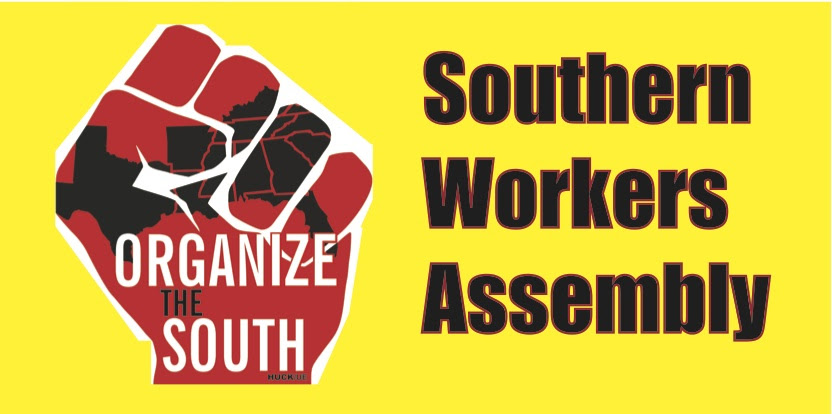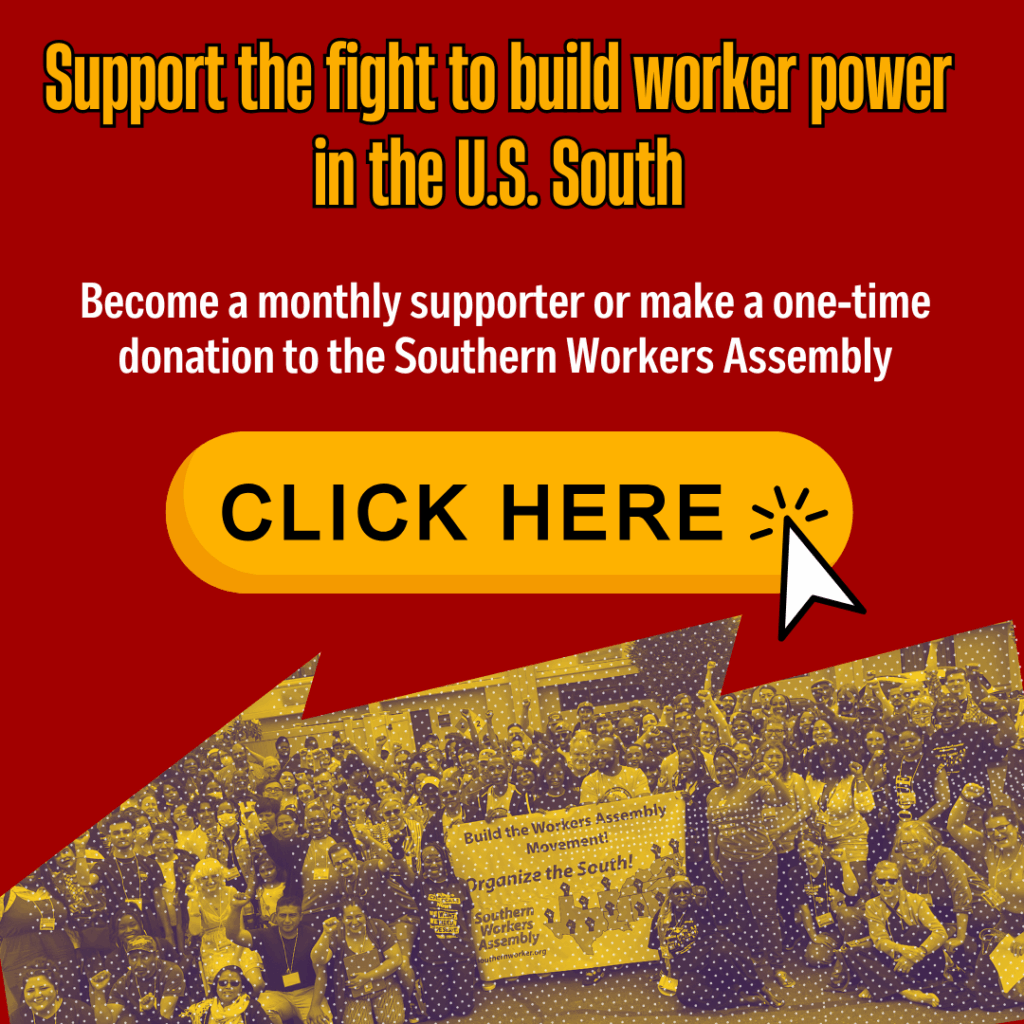October 9, 2012

This report comes to us from the USAS Campus Worker Justice Tour, a series of visits to campuses around the country where students and workers are fighting back against corporate outsourcing and the exploitation of campus workers.
By Vanlyn Ramsay and Jeffrey Lichtenstein
Where We’ve Been
Workers at the University in Memphis, like many public workers in the south, have no collective bargaining rights and face “right to work” labor law. Much of this state law can be traced straight back to Jim Crow policy, often quite literally (in North Carolina, the law that explicitly bars public workers from collective bargaining was passed by the last Jim Crow legislature in session). At the University of Memphis, where for the first 48 years in operation Black workers kept the school running but only white students could attend, poverty wages have long been the status quo.
12 years ago at the University of Tennessee, Knoxville, several students and workers, appalled by the wages of many campus housekeepers, and frustrated by previous living wage efforts that put students in the lead ahead of workers, kicked off a campaign that culminated in the formation of a new union. United Campus Workers is now a healthy and growing bright spot in the otherwise labor gloom of Tennessee and the south. UCW draws a good portion of its leadership from many former USASers who made the intentional choice to become rank and file campus workers, and it struggles not only on behalf of workers, but on behalf of all working class people who are affected by higher education, including students and the community.
Two years ago United Campus Workers began to grow in Memphis and the grinding poverty of its new members there could not be denied; UCW soon called for a living wage for U of M workers. The passion of the union laborers drew the attention of students, and led to the re-formation of the Progressive Student Alliance (PSA), and the official launch of the living wage campaign on campus.
In the first few months of the campaign a speakout, organized by the union, PSA, and community allies drew the better part of 100 people, and for the first time low-wage workers spoke out about the poverty University of Memphis traps them in.
Since that time the campaign has grown. The PSA and the union have both grown stronger, the issue has been covered in the campus and the local media many times, and a diversity of tactics, such as petitions, delegations, and rallies, have been used.
Because workers have organized themselves into a powerful force in their union, and students have done the same in the PSA, we have won multiple victories: Air conditioning that previously was left off only until administrators arrived is now (usually) turned on when the custodial staff arrives. An abusive supervisor was dismissed. And though workers still make well below a living wage, for two years running now campus workers have received raises, with the lowest paid workers receiving a larger percentage rate increase than middle and high income employees.


